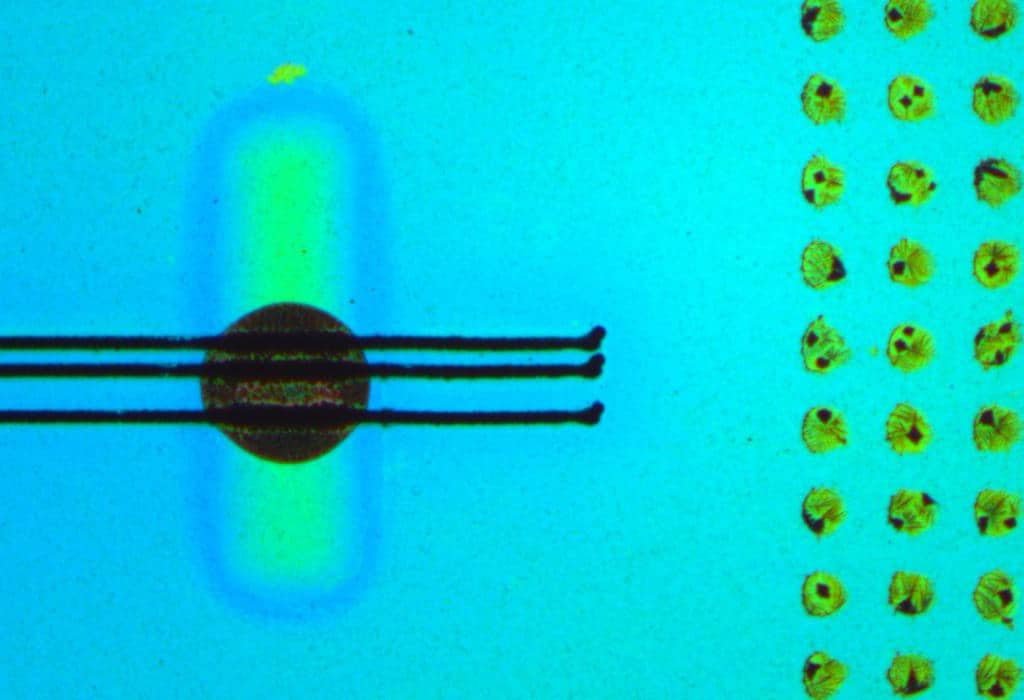Biosensors and Bioinstrumentation
Utilizing recent advances in biochemistry, electronics, omics and physiology to develop novel diagnostic, therapeutic and prosthetic devices

Research in the fields of biosensors and bioinstrumentation utilizes recent advances in biochemistry, electronics, omics (genomics, epigenetics, proteomics), and physiology to develop novel diagnostic, therapeutic, and prosthetic devices.
Duke biosensor researchers engineer macro- and nano-scale devices that utilize biological components, such as antibodies or enzymes, to detect and quantify minute amounts of chemicals or investigate biological process in diverse systems and environments.
Duke bioinstrumentation researchers create and disseminate diverse health care technologies and know-how around the world, especially focusing on the developing world. The biosensors and bioinstrumentation research communities at Duke are supported and enhanced by the Fitzpatrick Institute for Photonics and the Duke Global Health Institute.
Associated Faculty

Ashutosh Chilkoti, Ph.D.
Alan L. Kaganov Distinguished Professor of Biomedical Engineering

Mark L. Palmeri
Professor of the Practice in the Department of Biomedical Engineering

Tuan Vo-Dinh, Ph.D.
R. Eugene and Susie E. Goodson Distinguished Professor of Biomedical Engineering

Patrick D. Wolf
Associate Professor Emeritus of Biomedical Engineering

Junjie Yao, Ph.D.
Jeffrey N. Vinik Associate Professor of Biomedical Engineering
Other Research Specialties
Explore additional specialty research areas in Duke BME and throughout the Pratt School of Engineering.





